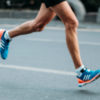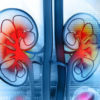COVID-19 is a highly contagious respiratory illness caused by a virus. Most cases of COVID-19 are mild to moderate, like the common cold. But it can be more severe in older adults and people with chronic health conditions.
The virus is most likely to be spread from person to person by droplets when coughing and from contact with surfaces where those droplets have landed. Since this virus is new, health authorities continue to carefully watch how this virus spreads. More information on how this virus spreads can be found on the State of NJ Department of Health’s website










